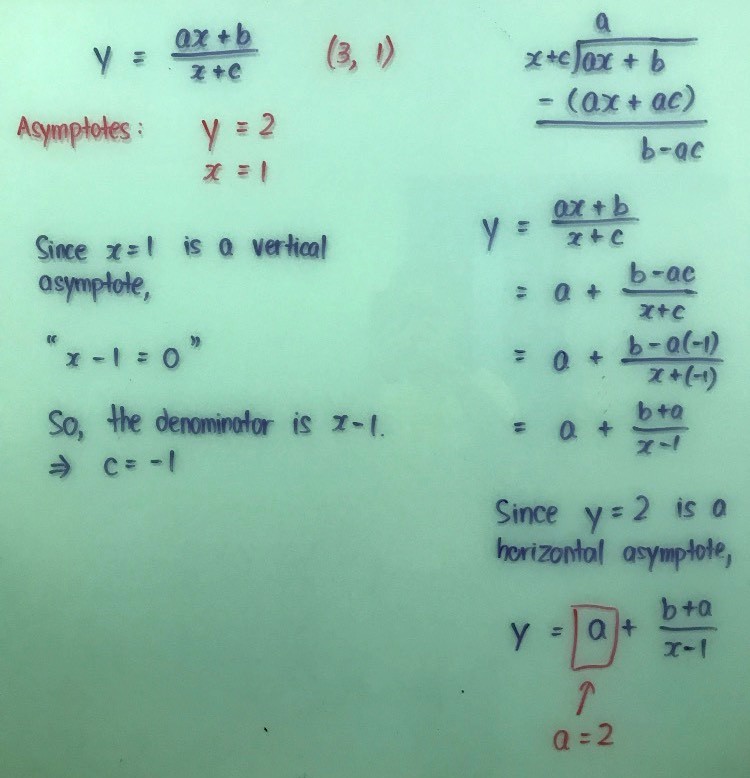Eric Nicholas K's answer to ok's Junior College 1 H2 Maths Singapore question.
done
{{ upvoteCount }} Upvotes
clear
{{ downvoteCount * -1 }} Downvotes
The reason for this is that for the fraction (b + a) / (x - 1), as x goes very positive large or very negative large, the magnitude of the denominator becomes much much larger than the numerator. As such, this fraction approaches a value of zero. It is the presence of such “zero approaches” which give rise to asymptotes.
Date Posted:
4 years ago
thank you !



